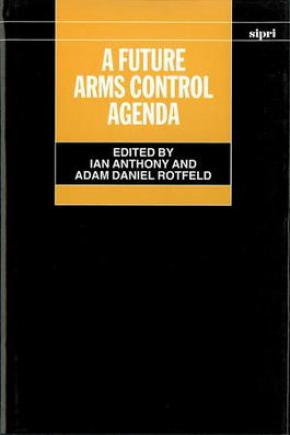A Future Arms Control Agenda: Proceedings of Nobel Symposium 118, 1999
The Nobel Symposium on A Future Arms Control Agenda was organized by SIPRI to consider how arms control can contribute to creating a cooperative security system based on the peaceful resolution of disputes and the gradual demilitarization of international relations. The proceedings of the symposium include comprehensive discussions of the new normative and structural elements of the post-cold war global security system and the objectives and limits of arms control within that evolving system. Special attention is given to the changing roles and responsibilities of the major powers in arms control efforts. The role of transparency, verification and safeguards measures in arms control arrangements is analysed by a number of contributors. The subregional aspects of arms control are examined, in particular the uses of arms control instruments in conflict resolution and post-conflict settlement efforts. Approaches to enforcing norms codified in arms control treaties are considered, as are the international community's responses to activities by treaty parties which are judged to be contrary to those norms.
The Stockholm Agenda for Arms Control, a summary of the Nobel Symposium, was published separately.
1. The future of arms control and international security
Adam Daniel Rotfeld
Part I. The security environment and arms control
2. Arms control: An endangered species in the new security environment?
Alyson J. K. Bailes
3. A security strategy for the 21st century
William J. Perry
4. Observations on arms control in a new security environment
Anders Bjurner
5. Objective and limits of arms control in the new security environment
Vladimir Baranovsky
6. Good guys, bad guys and arms control
Richard N. Perle
Part II. The role of major powers
7. Major powers and arms control: A Russian perspective
Yuri K. Nazarkin
8. Major powers and arms control: A US perspective
James E. Goodby
9. Major powers and arms control: A Chinese perspective
Li Changhe
10 . Major powers and arms control: A Japanese perspective
Hisashi Owada
11. Towards a cooperative arms control regime
Sergey Rogov
Part III. Arms control in transition: in search of a new organizing principle
12. The future arms control agenda: Escaping the prison of the past
Terence Taylor
13. Transition from balance of power to a cooperative system
David Ivry
14. Arms control in transition: Building a new security order
Carlo Jean
15. Structural and cultural challenges to arms control in intra-state and post-conflict environments
Keith Krause
16. Arms control as a conflict management tool
Nicole Ball
17. Arms control and peace settlements and the challenges of sub-state activities
Leonard T. Kapungu
18. Transparency and verification: A Swedish perspective
Staffan Sohlman
19. Arms export controls
Ian Anthony
Part IV. Compliance with arms control commitments
20. Arms control in a world of cheating: Transparency and non-compliance in the post-cold war era
Steven E. Miller
21. Compliance or non-compliance with arms control and disarmament
Rolf Ekéus
22. Transparency, verification and safeguards
Thérèse Delpech
23. Verification of compliance
Andrzej Karkoszka
24. Compliance and non-compliance with treaties: Inducements and coercion in the arms control process
István Gyarmati
25. Conventional arms control agreements: Issues of compliance
Zdzislaw Lachowski
Part V. The SIPRI Arms Control Survey
26. Conventional arms control in Europe
Zdzislaw Lachowski
27. Anti-personnel mines
Zdzislaw Lachowski
28. Nuclear arms control and non-proliferation
Shannon N. Kile
29. The elimination of chemical and biological weapons
Jean Pascal Zanders
30. Arms control and disarmament agreements
Ragnhild Ferm
Annexes
Annexe A. Documents of the Nobel Symposium
Annexe B. The Stockholm Agenda for Arms Control


